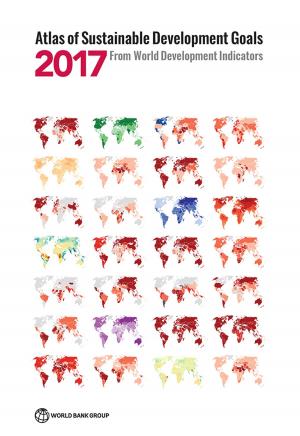Adapting To Climate Change In Eastern Europe And The Former Soviet Union
Nonfiction, Social & Cultural Studies, Political Science, Government, Public Policy| Author: | World Bank; Fay Marianne; I. Block Rachel; Ebinger Jane | ISBN: | 9780821381311 |
| Publisher: | World Bank | Publication: | January 25, 2010 |
| Imprint: | Language: | English |
| Author: | World Bank; Fay Marianne; I. Block Rachel; Ebinger Jane |
| ISBN: | 9780821381311 |
| Publisher: | World Bank |
| Publication: | January 25, 2010 |
| Imprint: | |
| Language: | English |
The climate is changing and many Eastern European and Former Soviet Union countries are vulnerable to the consequences. Many countries are facing warmer temperatures, a changing hydrology and more extremes, droughts, floods, heat waves, windstorms, and forest fires. Already the frequency and cost of natural disasters have risen dramatically in the region. And the concentration of greenhouse gases already in the atmosphere guarantees that similar or greater changes are yet to come, even if the world completely stopped emitting carbon dioxide. Now, and at least for the near future, ECA vulnerability is being driven more by its existing sensitivity than by the severity of the climate impacts. In fact, ECA already suffers from a serious adaptation deficit even to its current climate. This derives from a combination of socioeconomic factors and the Soviet legacy of environmental mismanagement. This report presents an overview of what adaptation to climate change might mean for ECA. It starts with a discussion of emerging best practice adaptation planning around the world and a review of the latest climate projections. The report then discusses possible actions to improve resilience organized around impacts on natural resources (water, biodiversity, and the coastal environment), health, the 'unbuilt' environment (agriculture and forestry), and the built environment (infrastructure and housing). The last chapter concludes with a discussion of two areas in great need of strengthening given the changing climate: disaster preparedness and hydrometeorological services.
The climate is changing and many Eastern European and Former Soviet Union countries are vulnerable to the consequences. Many countries are facing warmer temperatures, a changing hydrology and more extremes, droughts, floods, heat waves, windstorms, and forest fires. Already the frequency and cost of natural disasters have risen dramatically in the region. And the concentration of greenhouse gases already in the atmosphere guarantees that similar or greater changes are yet to come, even if the world completely stopped emitting carbon dioxide. Now, and at least for the near future, ECA vulnerability is being driven more by its existing sensitivity than by the severity of the climate impacts. In fact, ECA already suffers from a serious adaptation deficit even to its current climate. This derives from a combination of socioeconomic factors and the Soviet legacy of environmental mismanagement. This report presents an overview of what adaptation to climate change might mean for ECA. It starts with a discussion of emerging best practice adaptation planning around the world and a review of the latest climate projections. The report then discusses possible actions to improve resilience organized around impacts on natural resources (water, biodiversity, and the coastal environment), health, the 'unbuilt' environment (agriculture and forestry), and the built environment (infrastructure and housing). The last chapter concludes with a discussion of two areas in great need of strengthening given the changing climate: disaster preparedness and hydrometeorological services.















